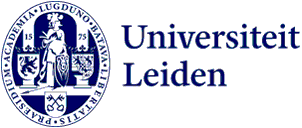
Hour of Remembrance on 4 May: ‘We commemorate war victims and draw links to the present’
During the ‘Hour of Remembrance’ on 4 May, the University community remembers its students and staff who were killed in the Second World War. It also looks at freedom and oppression today. Three questions for Sara Polak, chair of the Hour of Remembrance committee.
What is the Hour of Remembrance?
It is still a young tradition; the University only started it two years ago. Before the municipal commemoration – in the Pieterskerk church and the wreath-laying at the Molen de Valk windmill – we remember the fallen students and staff of Leiden University. There is a list of 663 known University victims but this is probably incomplete. We don’t have a war memorial here at the University, which makes it important that we commemorate the victims from our ranks at this event.
‘We do have the Cleveringa tradition, of course: Professor Cleveringa is a heroic figure, and it is right that we commemorate him. But the theme of the Hour of Remembrance is the victims. We also draw links to the present and consider the question: What do freedom and unfreedom mean to us now? At this very moment, academic freedom is under pressure all over the world.’

Shouldn’t we also have a memorial?
‘The main thing is that we acknowledge our war history and keep on reflecting on it anew. This annual event makes that possible, which means the commemoration takes a contemporary shape each year and keeps the stories alive. There are ideas to erect a digital monument: an interactive monument that would provide information and tell the stories of all those students and staff members who died. It would be nice if this were realised.’
What else would you like to achieve with the Hour of Remembrance?
‘The commemoration of the Second World War is at a crossroads now there are fewer and fewer people who consciously experienced the war. By remembering, we pass on the message to future generations that such a terrible thing should never happen again. It is a moral appeal. In previous wars, the message was: we must forgive and forget and move on together. But after the Second World War, the conviction arose that we must keep the memories alive to prevent it from happening again, as a frame of reference for what can happen when you judge people on their ethnicity, for example. Each year, a different faculty is responsible for the commemoration. Students also play an important role in the programme. Their presentation could be about the victims of the Second World War, but it could also be about contemporary victims of oppression. Now everyone is thinking about the war in Ukraine and of course we can refer to that.’
Hour of Remembrance in the Academy Building 16.15-17.15. You can attend the commemoration in the Academy Building, but can also watch it online via a livestream. The link to the livestream will be available on this page on 4 May. The event will be in Dutch but English translations of the speeches will be available at the Academy Building. Programme:
- Welcome speech by Rector Hester Bijl
- Memorial lecture by LUMC Dean Pancras Hogendoorn on, among other things, moral dilemmas.
- Memorial lecture by Willemijn Waal, director of the Netherlands Institute for the Near East (NINO).
- Presentation by students from M.F.L.S., the Faculty of Medicine/LUMC study association, about the fate of students from the time and the lessons we can learn.
